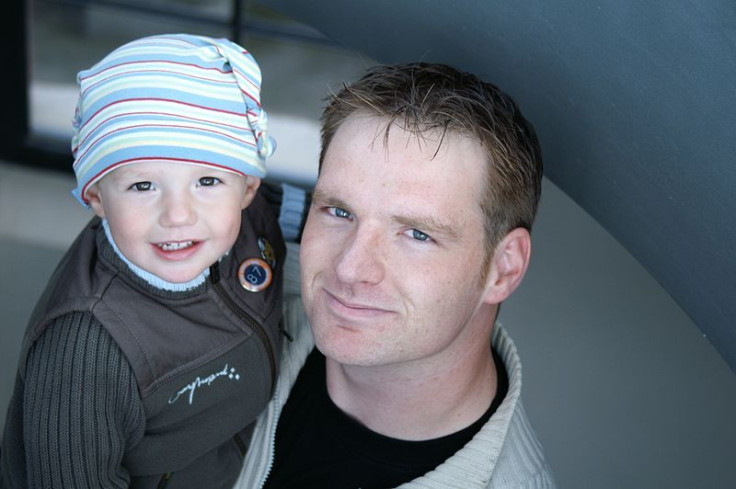Emotional Intimacy in Marriage Can Soften the Effect of Depressed Dad on Kids

A depressed father's emotions can be withheld from affecting his children if there is intimacy in his marriage, according to a study from the University of Illinois.
"When a parent is interacting with their child, they need to be able to attend to the child's emotional state, be cued in to his developmental stage and abilities, and notice whether he is getting frustrated or needs help," Nancy McElwain, a University of Illinois professor of human development and co-author of the study, said in a press release. "Depressed parents have more difficulty doing that."
The researchers examined data from a subset of 606 children and their parents who participated in the Eunice Kennedy Shriver National Institute of Child Health and Human Development (NICHD) Study of Early Child Care and Youth Development. When their children were four-and-a-half years old, the parents ranked themselves on two scales-one that assessed depressive symptoms and one that rated how intimate they felt they were with their spouses. The parents were also observed interacting with their children during semi-structured tasks at four-and-a-half and then six-and-a-half years old.
"At this stage of a child's development, an engaged parent is very important," Jennifer Engle, the study's lead author, said. "The son's or daughter's ability to focus and persist with a task when they are frustrated is critical in making a successful transition from preschool to formal schooling."
Researchers found that a wife who listens to and supports her husband positively influences the way he interacts with his kids.
"A supportive spouse appears to buffer the effects of the father's depression," Engle said. "We can see it in children's behavior when they're working with their dad. The kids are more persistent and engaged."
However, results were not the same for depressed mothers. Engle believes it's because men and women deal with depression differently. While a man will withdraw, a woman will reflect on her emotions.
"We think that a high emotional intimacy and sharing in the marriage may encourage a woman's tendency to ruminate about her depression, disrupting her ability to be available and supportive with her children," she said.
Two parent households have been shown to play an instrumental role in the rearing of children. A study published earlier this month found that children raised by two parents produced more brain cells. Canadian researchers examined the effects of two parent mice raising their pup compared to one parent. They found that male pups had increased grey matter production, which is instrumental in learning and memory, while female pups had increased white matter production, which is responsible for coordination and sociability.
Although these tests were done on mice, the researchers believe that the findings could be valid for humans too. Other studies have shown that children as young as five years old who are encouraged by both parents do better on school tests.
Sources:
Engle J, McElwain N. Parental Depressive Symptoms and Marital Intimacy at 4.5 Years: Joint Contributions to Mother-Child and Father-Child Interaction at 6.5 Years. Developmental Psychology. May 2013. Accessed May 22, 2013.
Mak G, Antle M, Dyck R, Weiss S. Bi-Parental Care Contributes to Sexually Dimorphic Neural Cell Genesis in the Adult Mammalian Brain. PLOS One. May 2013. Accessed May 22, 2013.



























